
A lively Easter bazaar at Meskel Square is the holiday highlight of Addis Abeba’s growing appetite for brand-driven events. The scene was energetic, with a DJ blasting music, while families snapped photos and queued for freebies.
Vendors called out deals, aware that the holiday is nearing. Some visitors wondered if they were overpaying. Still, the aura, media buzz, and luck of a jackpot kept the lines moving.
Inside, colourful banners advertise discounts between 30pc and 70pc. Lottery agents promote a 50 million Br Easter jackpot. Families roam amid vendors selling merchandise from clothes and electronics to household items—a Knorr stall hands out free chickpea stew samples. Children line up for rides on giant inflatable spheres bobbing in a small pool. Nearby, promoters in bright yellow St. George Beer shirts offer fast food snacks.
Organised by Tamesol Communication, managed by CEO Yanet Solomon, it boasts up to 350 vendors and an enthusiastic crowd. Attendees scan digital tickets on arrival, granting entry, a 10pc discount bonus, and a shot at winning a Telebirr-sponsored electric car worth 2.5 million Br.
Meals cost 150 Br, which is subsidised through a partnership with Sen’q Malt and Mahider Food Catering. Despite crowd appeal, some visitors say prices match regular shops.
Millennium Hall's bazaar felt subdued on the far end of the Africa Avenue (Bole Road) despite sharing many of the same vendors.
“What is the point of being here if you can’t sell?” asks one frustrated vendor.
Mustofa Abdella, CEO of Zafar Investment & Business Consultancy, says the disparity revealed the power of promotion. Meskel Square’s heavy promotion and major sponsorship draw buyers who trust the hype, even if prices were higher.
A mother of four, Kidist Gebregziabher, admired a waterproof blender demo by vendor Kirubel Eyasu, but noted the cost remains high. Bulk discounts helped a bit, though not everyone saw major savings. According to Ceramic seller Betelhem Getachew, a regular at Millennium Hall, low foot traffic compared to last Christmas bazaar. She called attendance “unexpectedly thin.”
In another part of the city, the Commercial Bank of Ethiopia Employees Consumer Cooperative Association launched a smaller bazaar at the Finfine branch. Over 20 vendors sell fresh produce, crafts, and clothing. Watermelons cost 35 Br, about half their typical price. The association's board chairman, Geletesa Negari, disclosed that booth fees cover tents and rentals from 3,000 to 5,000 Br.
Vendors wrestled with their own expenses. Kirubel paid 450,000 Br for his booth, banking on brisk sales to recoup the investment.
Kirubel hoped his waterproof blender trick would entice enough buyers to cover the rent he paid for the stall. As he submerged the appliance, onlookers murmured in curiosity. He was confident that the brand-driven excitement would translate into sales. Other vendors echoed that sentiment, citing the crowd’s willingness to spend under the glow of corporate backing.
According to Mustofa, steep booth fees demonstrated the marketing strength behind major events. Heavy promotion by Ethio telecom and the National Lottery “pre-sells” customers, making them more willing to spend. He projected that partnerships with media-savvy firms could define future bazaars, blending traditional outlets with social media platforms to draw bigger crowds. Smaller bazaars face a challenge, lacking big-name sponsors and wide advertising. They might focus on niche markets or combine efforts to amplify their reach.
High visibility can trump price concerns in a city where consumers watch their wallets. The prospect of winning prizes, from cars to lottery jackpots, further nudges shoppers to pay more.
At the Millennium Hall, vendors waited for a last-minute surge. However, the mood felt resigned.
“It’s unexpectedly cold for a Saturday,” said Betelhem, lamenting the light turnout.
Shoppers dropped by occasionally, but the contrast with Meskel Square was striking.
Back at Meskel Square, T-shirts cost 300 Br or more. Blenders range from 5,000 to 14,000 Br. Bags went for 10,000 Br. Shopper Sara Yohannes buys a bed cover at 7,000 Br “in bulk,” hoping the discount justified the price.
For many Addis Abeba residents, household budgets matter. Yet, major promotions shifted perceptions. Ties to recognisable sponsors and a flurry of ads reassured visitors that deals were valid, even if prices were high. Those seeking lower costs headed to less-promoted bazaars, but they often arrived wary of hype.
Kidist, the mother of four, weighed her options, but the excitement at Meskel Square was hard to resist. She left with items that might be found cheaper elsewhere, but said the festival atmosphere was part of the draw.
Mustofa saw a clear trend.
“Big sponsors bring big crowds," he told Fortune. "It’s that simple.”
Vendors who paid high booth fees bank on the promise of broader exposure, while smaller bazaars risk seeing fewer visitors. Even so, some could not afford the top-tier fees or fail to secure corporate partnerships, resulting in thinner turnout.
Tamesol’s Yanet anticipated more corporate ties in the future, believing these partnerships will expand promotional reach and draw larger audiences. She insisted that subsidised food and varied entertainment helped reinforce the bazaar’s appeal, even as rising costs remain a concern for many sellers.
Observers predicted that this dynamic will intensify, pushing organisers to spend more on advertising. Shoppers may grow more discerning, but brand partnerships and continuous publicity could remain crucial. Some saw it as a double-edged sword, since rising overhead can boost retail prices.
Whether this trend benefited consumers remains debatable. Bargains may exist, but flashier events hold the spotlight. Advertisers saturated the market, driving shoppers toward the perceived security of brand-backed bazaars. For now, the green flags of Telebirr at Meskel Square filled lines and ringed tills, demonstrating the influence of media and sponsorship in Addis Abeba’s bazaar culture. Organisers now hope future bazaars will balance both sides.
PUBLISHED ON
Apr 19,2025 [ VOL
26 , NO
1303]
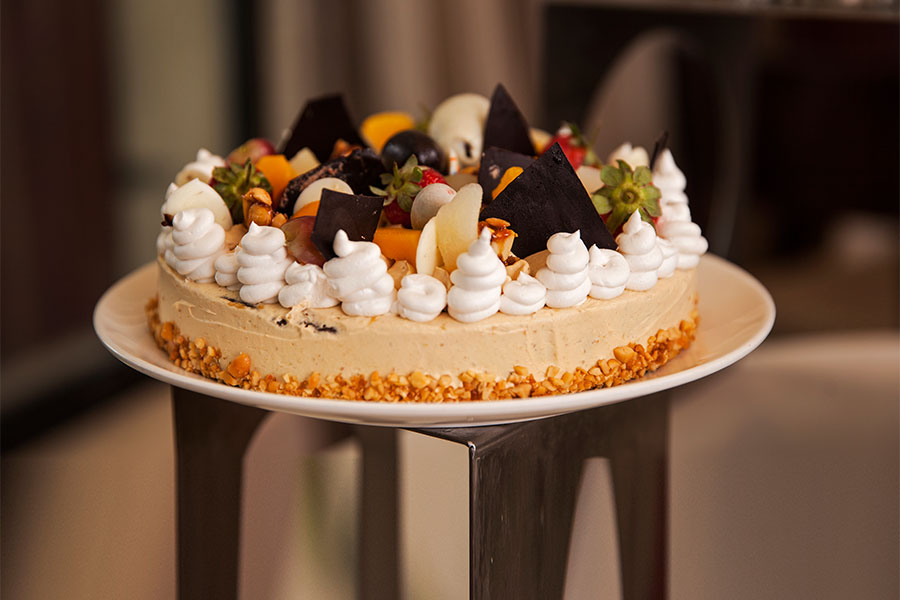
Featured | Apr 26,2019
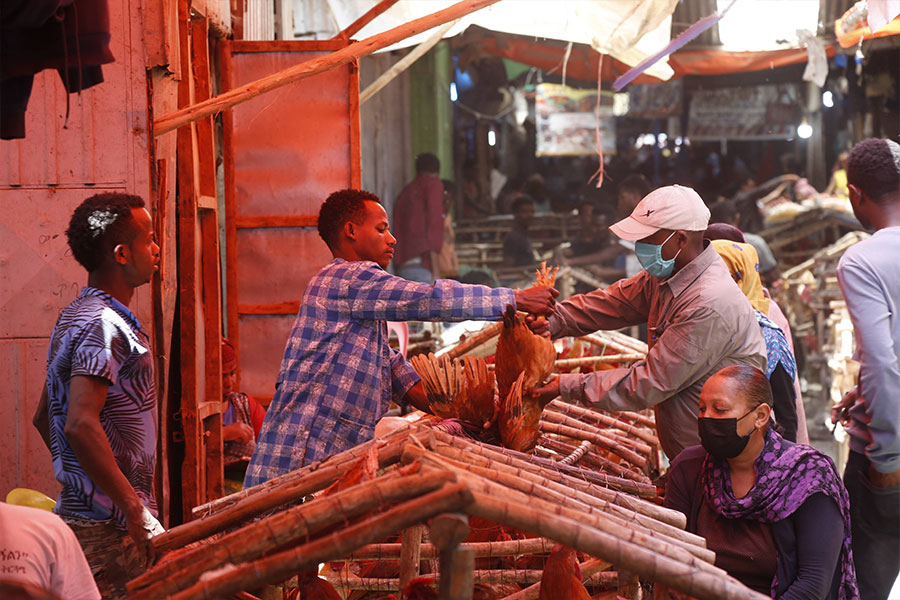
Agenda | Apr 22,2022
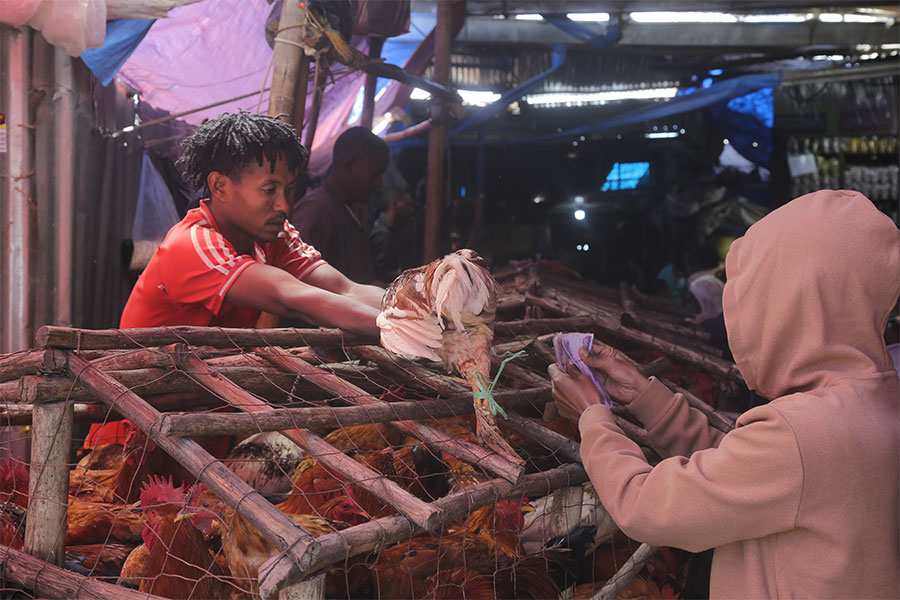
Agenda | Jan 07,2023
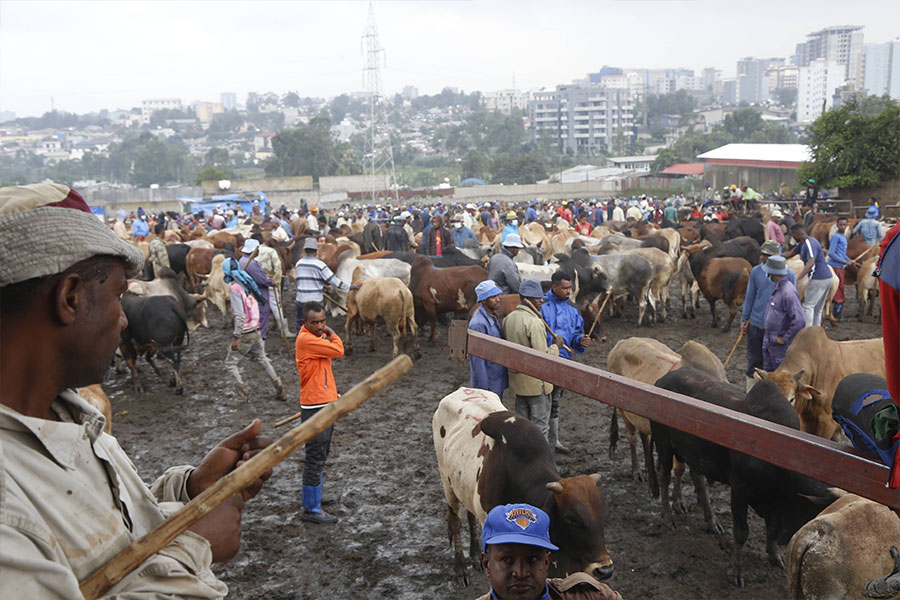
News Analysis | Sep 10,2021
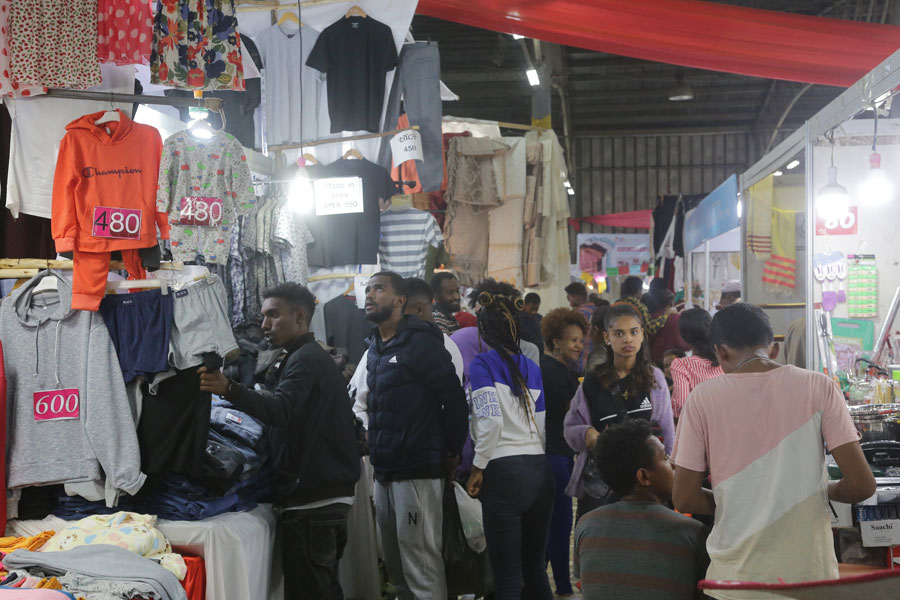
Featured | Jan 01,2023
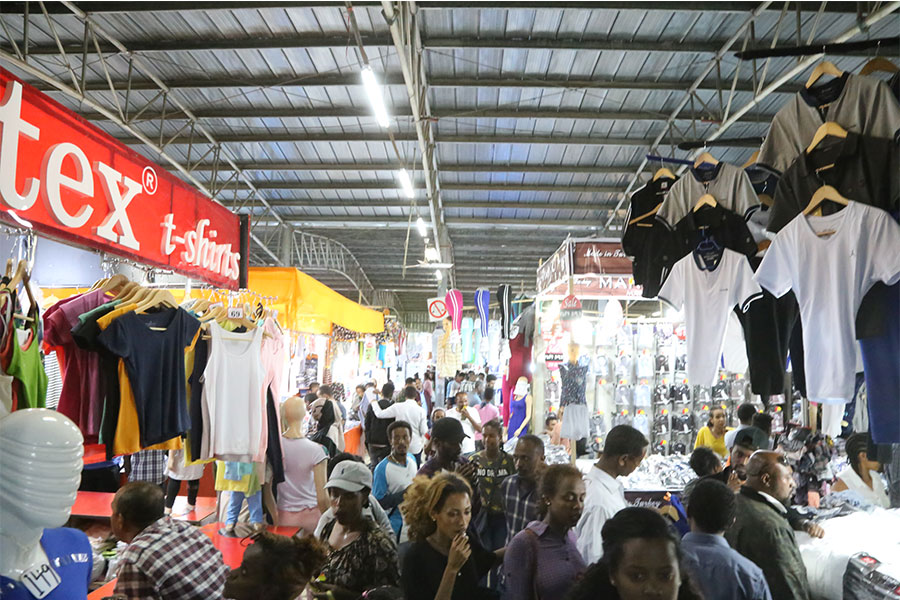
Featured | Apr 20,2019

Radar | Sep 02,2023
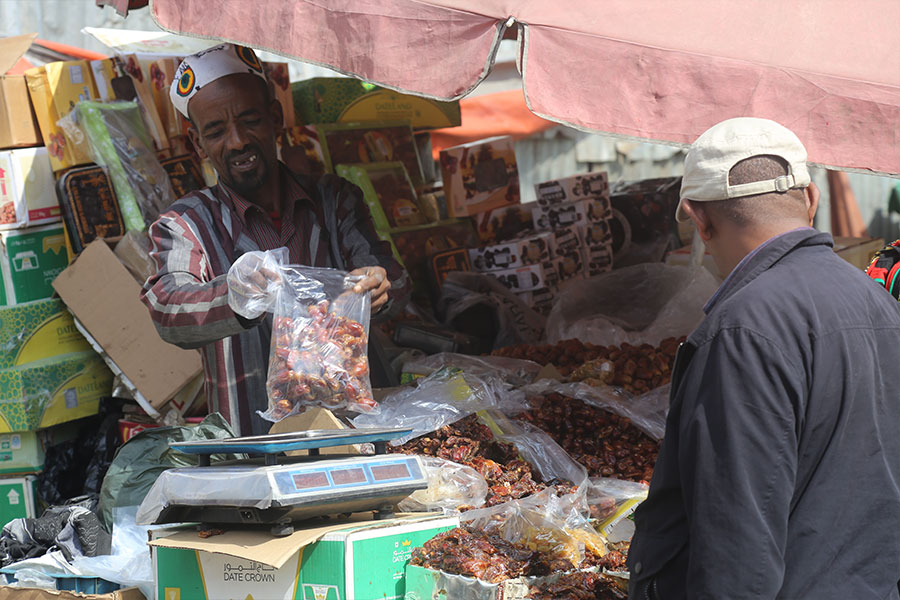
Featured | Apr 22,2023
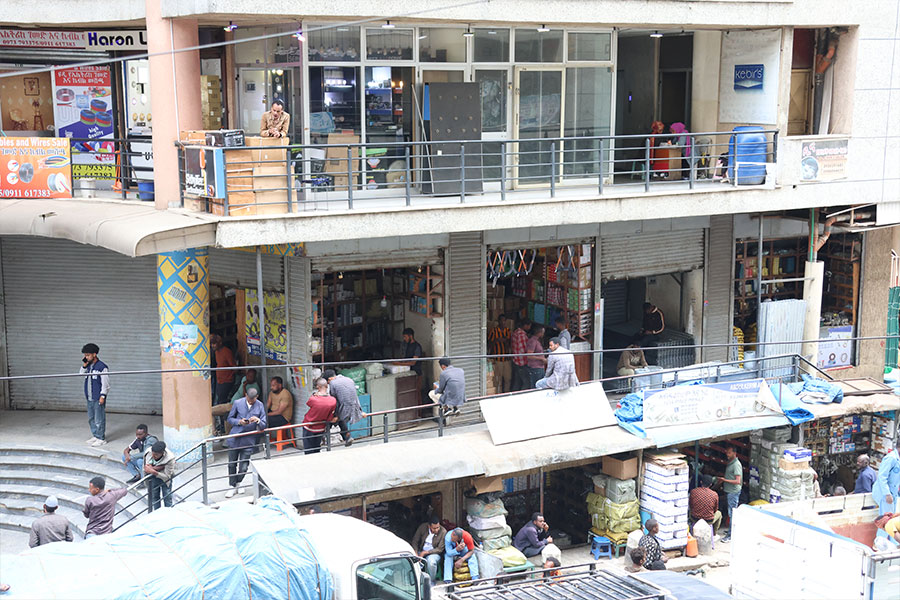
Fortune News | Apr 13, 2025
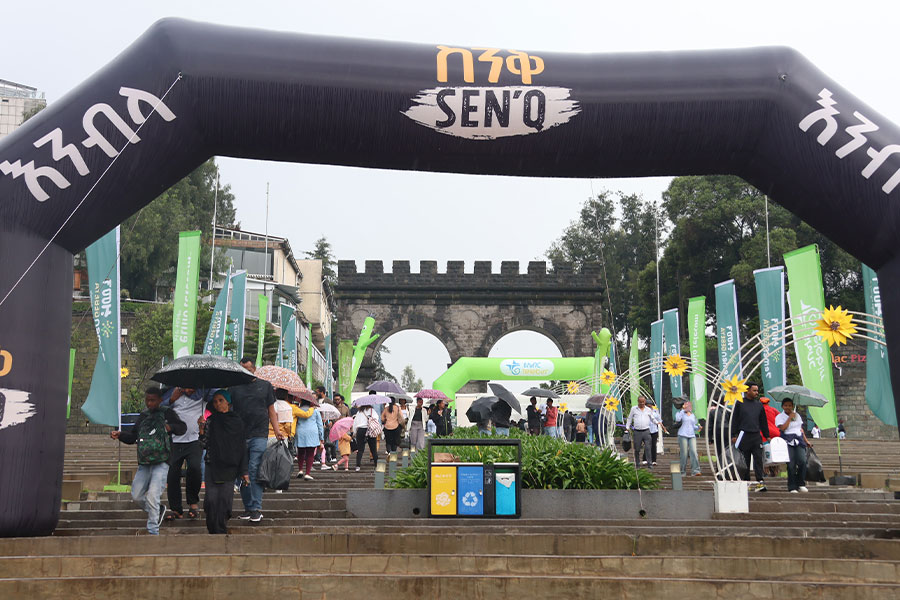
Featured | Sep 07,2025

Dec 22 , 2024 . By TIZITA SHEWAFERAW
Charged with transforming colossal state-owned enterprises into modern and competitiv...

Aug 18 , 2024 . By AKSAH ITALO
Although predictable Yonas Zerihun's job in the ride-hailing service is not immune to...

Jul 28 , 2024 . By TIZITA SHEWAFERAW
Unhabitual, perhaps too many, Samuel Gebreyohannes, 38, used to occasionally enjoy a couple of beers at breakfast. However, he recently swit...

Jul 13 , 2024 . By AKSAH ITALO
Investors who rely on tractors, trucks, and field vehicles for commuting, transporting commodities, and f...

Oct 25 , 2025
The regulatory machinery is on overdrive. In only two years, no fewer than 35 new pro...

Oct 18 , 2025
The political establishment, notably the ruling party and its top brass, has become p...

Oct 11 , 2025
Ladislas Farago, a roving Associated Press (AP) correspondent, arrived in Ethiopia in...

Oct 4 , 2025
Eyob Tekalegn (PhD) had been in the Governor's chair for only weeks when, on Septembe...